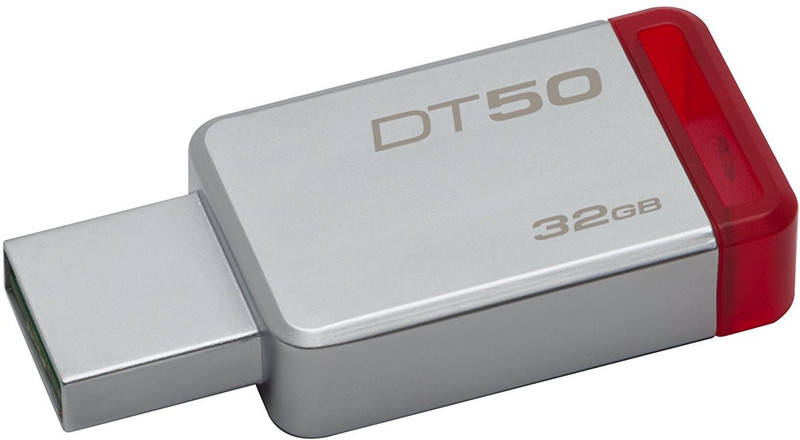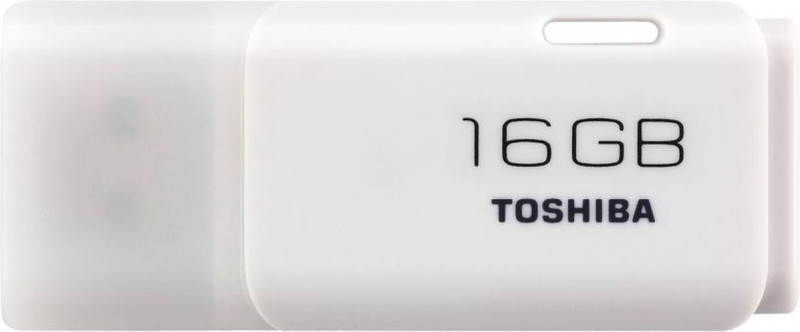Dates, Water And Beyond: What To Eat First At Iftar For Better Digestion

As the sun dips below the horizon and the melodious call of the Maghrib adhan fills the air, a sense of relief and anticipation takes over. It's iftar time. After a day of fasting, the urge to eat everything in sight is understandable, hunger and thirst have been patiently waiting their turn. But iftar is not just about filling the stomach; it's about fuelling the body wisely. What is eaten first can set the tone for the rest of the evening and even the next day.
Choosing the right foods to break a fast isn't just a matter of tradition or preference; it's about easing the body back into the rhythm of digestion. When done right, the iftar plate becomes a source of healing, energy, and balance. From the classic trio of dates and water to gut-friendly warm soups and energy-sustaining fruits, here's a look at what to reach for first when the fast breaks.
Also Read: Ramadan 2025: Top 10 Healthy Foods To Add To Your Suhoor And Iftar
1. Dates: Nature's Sweet Break-Fast
A staple at the iftar table, dates are more than just a tradition, they're a digestive superhero. High in natural sugars like glucose, fructose, and sucrose, dates offer a quick energy boost that the body craves after fasting. But beyond the sugar rush, they're also rich in fibre, potassium, magnesium, and antioxidants.
The fibre in dates helps kickstart sluggish digestion, which has slowed down during the day. Their soft texture is easy on the stomach, and they're gentle enough to not overwhelm the digestive tract. One or two dates are usually enough to break the fast, just enough to perk up the senses and signal the body that food is coming.
There's also something beautifully symbolic about starting with something so naturally sweet. It softens the moment, almost like a warm hug for the digestive system. And let's be honest, the slight stickiness and caramel-like taste of dates at sunset? Nothing quite compares.
2. Water, But Not Too Much: Sip Slowly, Breathe Deeply
Water is the obvious go-to at iftar, especially when thirst has been building all day. But there's a catch: gulping down glass after glass can shock the system. After hours without fluids, the stomach needs time to adjust. A sudden flood of water can dilute digestive enzymes and leave a person feeling bloated.
Instead, a few small sips to start is the way to go, just enough to rehydrate and moisten the throat. Room-temperature water is best; icy cold drinks might be tempting, but they can cause the stomach to contract and lead to cramps or indigestion.
Following the prophetic tradition of breaking the fast with dates and water not only carries spiritual meaning, but also aligns with what science and nutrition tell us, gentle, intentional rehydration is kinder to the body. And let's not forget the calming effect of water after a long day. It's like telling the body, “We're okay now. You did it.”
3. Warm Soups: The Soothing Bridge To A Nourishing Meal
If dates and water are the welcome mats, then the soup is the gentle transition into the rest of the meal. A bowl of warm, light soup does wonders for the digestive system. It reintroduces nutrients and warmth into the gut, preparing it for more complex foods.
Soups made from lentils, vegetables, or bone broth are especially good choices. Lentils are rich in protein and fibre, helping to stabilise blood sugar levels and prevent that post-iftar crash. Bone broth adds collagen and minerals, while vegetable-based soups hydrate and replenish lost electrolytes.
Culturally, soups have always played a quiet but important role in Ramadan meals across the world, from Moroccan harira to Turkish ezogelin. Their steam rises like a whisper of comfort, and their aroma brings people together before the heavier dishes arrive. More than just a dish, soup sets the tone: slow, warm, and satisfying.
4. A Few Bites Of Fruit: Gentle, Juicy Energy
Fruits are a natural way to wake up the digestive system with a burst of hydration, vitamins, and sugars. After hours of fasting, the body craves something light and easy. Think watermelon, oranges, papaya, or bananas, fruits that are soft, rich in water, and easy to digest.
Their natural sweetness helps stabilise blood sugar levels without overwhelming the stomach. Plus, fruits are packed with antioxidants that combat oxidative stress, which can rise during fasting. Watermelon, in particular, is a favourite, refreshing, sweet, and hydrating. It's like nature's candy with benefits.
But moderation is key. A few slices are enough. Overdoing it can cause bloating or make one feel too full to enjoy the main meal. Think of fruit as the prelude to a melody, light, vibrant, and perfectly in tune with what the body needs in that gentle first hour of eating again.
5. Yoghurt And Kefir: Gut-Friendly Goodness
Fermented dairy products like yoghurt and kefir are often overlooked during iftar, but they can play a powerful role in digestive health. Rich in probiotics, they help restore gut flora and make digestion smoother after a long pause in eating.
Plain yoghurt with a drizzle of honey or a few mint leaves is not only cooling, but also provides calcium, protein, and beneficial bacteria. Kefir, the tangier cousin of yoghurt, is even more probiotic-dense and can be sipped slowly to line the stomach before heavier foods come in.
In many cultures, yoghurt-based dishes like ayran or lassi are common at iftar, and not just for their taste. They soothe the stomach, especially if spicy or fried foods are part of the meal. A small bowl or glass can act like a peace treaty for the gut, calming, comforting, and delightfully creamy.
6. Nuts And Seeds: A Crunch Of Sustained Energy
A handful of almonds, walnuts, or pumpkin seeds can be a great addition to iftar, but timing matters. After dates and water, a small serving of nuts offers healthy fats and protein without overwhelming the stomach. These nutrient-dense bites are excellent for keeping energy levels up and curbing the urge to overeat.
Almonds are particularly kind to the digestive system, and walnuts add omega-3 fatty acids that support brain health and reduce inflammation. Seeds like chia or flax can be sprinkled into yoghurt or smoothies for added fibre.
Just a small portion, think a tablespoon or two, is enough to awaken the digestive system and offer slow-release energy. They provide a crunchy contrast to the softness of dates or soups, adding variety in texture and flavour. The key here is mindful munching, not mindless snacking.
7. Herbal Infusions: Calm The Gut, Lift The Spirit
Before or after the main meal, herbal teas can work wonders for digestion. Peppermint, ginger, fennel, or chamomile teas are known for their soothing properties. Sipped slowly, they help reduce bloating, calm the gut, and prevent post-meal discomfort.
A cup of peppermint tea after dates and soup can refresh the palate and relax stomach muscles. Ginger tea, with its subtle kick, stimulates digestion and eases nausea. Fennel seeds, often chewed after meals in South Asian cultures, can be steeped to create a warm, comforting brew that supports gut health.
These herbal helpers don't just aid the body, they create a ritual of slowing down. In the midst of Ramadan's busy evenings, pausing for a cup of tea can be a grounding moment. It's a gentle reminder that digestion isn't just physical, it's emotional too.
8. Avoid The Heavy Hitters, For Now
The aromas of biryani, kebabs, and rich stews may call out loud and clear, but they can wait. Jumping straight into heavy, oily, or spicy foods right at iftar can overload the digestive system. The body, after a long fast, is like an engine that needs warming up, not a racecar ready for full throttle.
Greasy or complex dishes can cause indigestion, sluggishness, and even heartburn if eaten too soon. Instead, giving the stomach a gentle start, with the foods mentioned above, allows digestive enzymes to kick back into gear naturally.
Once the body has had a soft landing, it can handle richer dishes more comfortably, ideally 30 to 45 minutes later. It's not about skipping the good stuff, it's about timing it right. The joy of Ramadan food is still on the table, just not all at once.
Products Related To This Article
1. Nutty Gritties Premium Kalmi Dates- 350g
2. Fast&Up Reload (20 Liters) - (Berry, Aam Panna
3. Earthy Origins Grass-Fed Goat Bone Broth - Instant Mix
4. Khari Foods Dried Cranberries
5. Happilo Panchmewa Dry Fruit Mix Jar 900g
6. Zoh Probiotics Greek Yogurt Starter Culture
7. True Elements 7 in 1 Seeds Mix 250g - Edible Seeds
8. BLUE TEA - 3 in 1 Combo | Butterfly Pea Flower Tea
Iftar isn't just about filling an empty belly, it's about nurturing the body and honouring the fast. Starting with the right foods can make all the difference between feeling energised or sluggish, light or bloated. Dates and water offer tradition and function. Soups, fruits, and probiotic-rich options like yoghurt bring balance and comfort. Herbal teas and a gentle pause between courses invite calm and mindfulness.
Ramadan is a time of reflection, discipline, and gratitude, and the way the fast is broken should echo those values. With a little thought and a lot of heart, every iftar can be a moment of nourishment, not just for the body, but for the soul.
Disclaimer: The images used in this article are for illustration purposes only. They may not be an exact representation of the products, categories, and brands listed in this article.



























